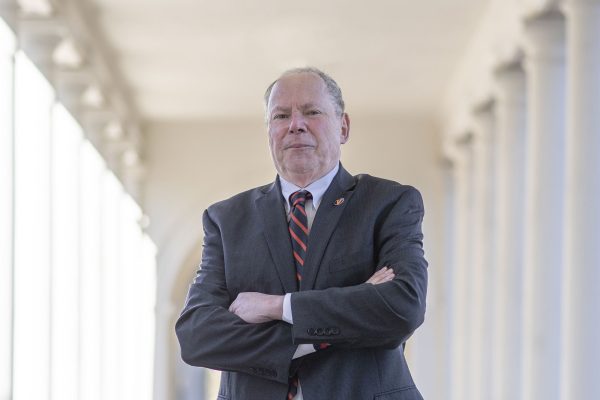Dean’s Blog: On Gryffindor and How to Organize a School of Data Science
When I entered primary school in west London I was randomly assigned to a “house.” There were four houses, Norman, Tudor, Stuart, and Windsor after the four periods of British history. I became a member of Stuart, and our team color was green.
On a board in the assembly hall were proudly displayed the points scored by each house based on academic and sports achievements. We worked hard to beat the other houses in a jovial, non-serious sort of way. The house concept would be a head-scratcher in the United States if it were not for Harry Potter and Gryffindor, Hufflepuff, Ravenclaw, and Slytherin.
What does this have to do with the School of Data Science?
Almost two years ago I wrote Dean's Blog: Departments of Not? as the first consideration for how we should organize ourselves as a school. We still have not decided, and the time has come.
Houses is the latest idea and one that seemed to resonate with my fellow academic deans. That's why I bring it up here to prompt further discussion. Recapping prior discussions across the School:
- There is agreement that a key ingredient of our success is the holistic approach we have to data science, which is reflected in the breadth of our faculty and what we teach and research.
- The consensus was we do not want departments: They tend to silo the organization and would dampen our holistic approach.
- Our 4+1 model of data science works for how we think about the field but is not an ideal organizational principle. Faculty belong to multiple of the four domains, and we still do not have enough faculty for meaningful design and systems domains to create balance.
- There needs to be a way for those with like-minded scholarship to fully collaborate and promote their collective scholarly endeavors.
- Administratively, we must do something. With around 50 faculty and another nine hires expected this academic year, we need to divide the task of mentoring and assessment. It is too much for the academic deans alone to be good mentors, conduct annual reviews, and generally give faculty all the support they need.
The thought is we start with two houses, other houses could be added as we grow. A fun exercise would be to have a competition across the school to assign house names. One model for how houses would operate is as follows:
- Faculty would be randomly assigned to the two houses such that balance across the four domains would be achieved as would the distribution of seniority, appointment type, and gender. In short, equality across the two houses.
- Program directors would be distributed across the houses.
- Academic deans would not be part of any house.
- House leaders would be assigned from senior faculty for each house.
- Oversight of annual review would be overseen by the academic deans and the house leaders.
- Promotion and tenure would be conducted as it is now with a P&T committee comprising members across the houses.
- Interest groups, supporting research, education of service can be proposed and supported.
- To further promote team spirit, competitions between houses will be thought up and executed.
The intent is that houses ease administrative burdens and create a sense of camaraderie but yet do not prevent collaboration among faculty across houses. What do you think?



